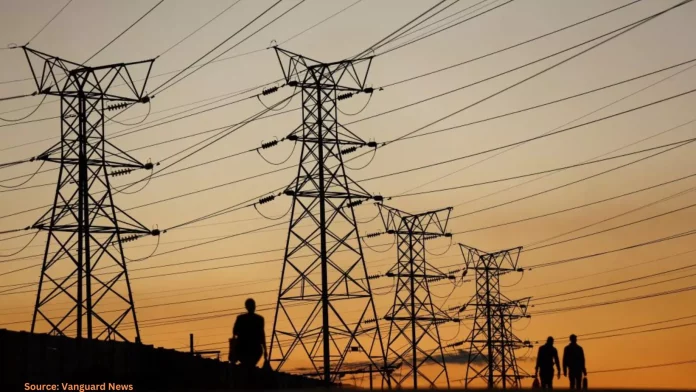- Nigeria’s electricity distribution companies (DisCos) have announced an upward review of electricity tariffs for Band A customers, effective July 1, 2024.
- The tariff for Band A customers has been increased from N206.80/kWh to N209.50/kWh.
- DisCos cited high operational costs, including fluctuations in exchange rate, inflation, available generation capacity, and cost of gas, as reasons for the tariff hike.
- The tariff increase has attracted criticism from industry stakeholders and Nigerians, who argue that it will further strain businesses and industries that rely heavily on power.
Newsypeople- The Nigeria Labour Congress, Trade Union Congress(NLC), and Organized Private Sector opposed the recent increase in electricity rates for customers in Band A Category. After the Nigerian currency (naira) lost value against the US dollar and inflation rose, the Nigerian Electricity Regulatory Commission raised rates for Band A customers.
On Wednesday, some power companies like Ibadan Electricity Distribution Company, Eko Electricity Distribution Company, and Kaduna Electricity Distribution Company announced an increase in Band A rates from 206.80 naira per kilowatt-hour to 209.50 naira/kWh. While the hike seems small, labor unions, private businesses, and consumers criticized the move.
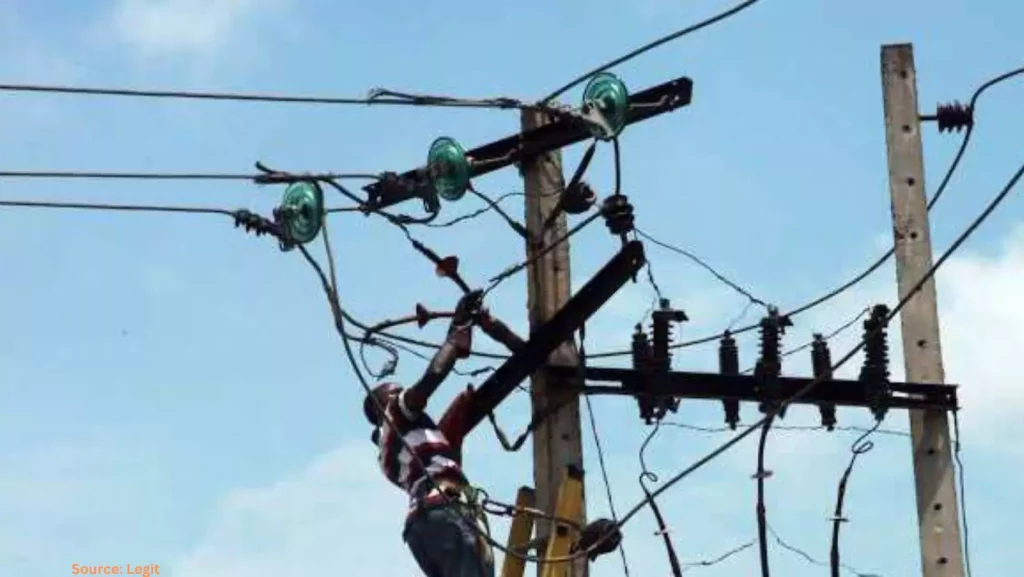
They questioned why the regulator approved a rate hike despite calls to reverse the previous increase. In a statement, the acting General Manager of Ibadan Electricity Distribution Company, Francis Agoha, said the Nigerian Electricity Regulatory Commission properly approved the reviewed rates as per the multi-year tariff order.
Agoha explained the adjustment responded to economic factors like currency exchange rates, inflation, available power supply, and natural gas costs. He said,
“These factors significantly increased our operating expenses. The new rates will ease these financial pressures while we continue providing quality electricity services.”
He explained the adjustment only impacts our Band A clients, saying,
“The rates for Bands B, C, D, and E stay the same.”
The IBEDC leader acknowledged that customers might worry about the higher prices. However, he said the increase was needed.
“We know any price change can concern our customers. We ensure this adjustment is crucial to keep and enhance our service quality. Our aim is to deliver the best value for your money,” he stated.
Reports show the price hike comes amid complaints from customers, including manufacturers, public and private groups. They say monthly electricity bills are becoming very costly.
Additionally, Kaduna Disco revealed in a statement titled ‘Upward Review of Tariff for Band A Feeders’ that the new rate took effect on July 1.
“Dear valued customers, Kaduna Electric informs the public of a higher tariff for Band A feeders. It rose from N206.80/kWh to N209.5/kWh. The change is effective July 1, 2024, impacting both prepaid and postpaid customers.”
“Kaduna Electric assures Band A feeder customers of continued 20-24 hour daily supply as per the Service Based Tariff system,” the statement read.
The public should know that the tariffs for energy bands B, C, D, and E will stay the same.
The hike in tariffs happened because the monthly cost of electricity subsidies went up. In May, the subsidies were $102.30 billion. But in June, they rose to $158.53 billion.
This increase of $56 billion in subsidies was caused by two factors. First, the value of the US dollar went up compared to the Nigerian naira. Second, inflation in the country kept rising.
Back in April, the NERC raised the tariff for Band A to $225 per kilowatt-hour. Before that, it was only $68. At that time, one US dollar was worth around 1,463 naira.
Documents show that in April, total subsidies were $140 billion. And the inflation rate was 31.7%.
In May, the Band A tariff went down to $206.80 per kilowatt-hour. The dollar was then worth around 1,227 naira. And inflation had climbed to 33.2%.
In May, the shortfall or subsidy needed was $102.3 billion. But in June, the subsidy claim rose from the previous $102.3 billion to $158.5 billion.
NERC data reveals that in June, one US dollar traded for around 1,470 naira. And inflation hit 34%, driving up costs for power generation, transmission and distribution.
For instance, at the Abuja Electricity Distribution Company, 611 megawatt-hours per hour were delivered in April, May and June. But the generation cost varied. It was $103.9 per kilowatt-hour in April, dropped to $87.33 in May, and rose again to $104.45 in July.
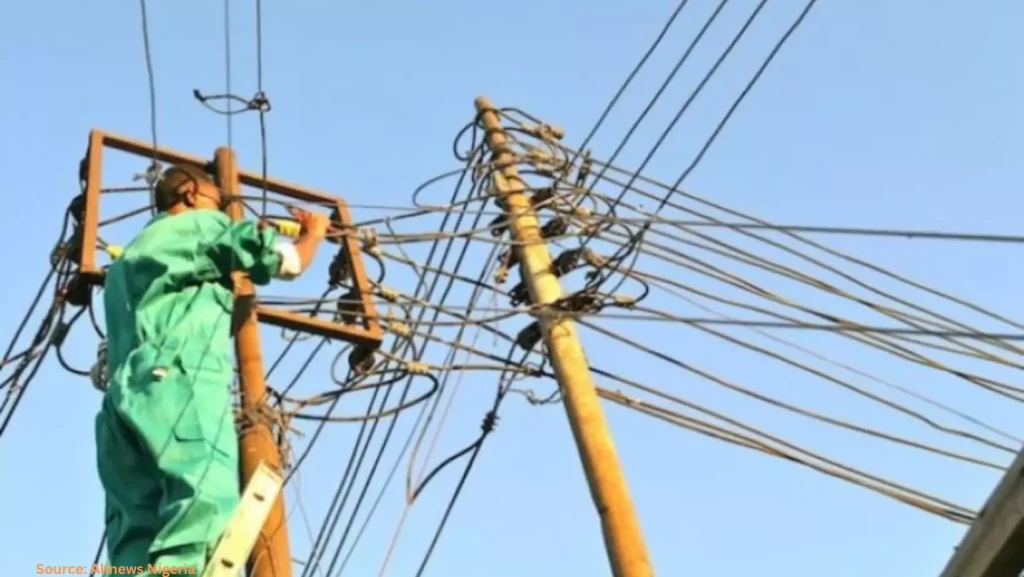
The Abuja Electricity Distribution Company (AEDC) faced high transmission and admin costs. They spent N9.1 per kilowatt-hour in April, N8.9/kWh in May, and N9.8/kWh in June.
Data from the Nigerian Electricity Regulatory Commission (NERC) shows the cost-reflective tariff for end-users in the AEDC area was N180.2/kWh in April, N156.9/kWh in May, and N181.7/kWh in June.
However, the end-user allowed tariff was much lower at N123.51/kWh, N116.23/kWh, and N116.23/kWh for April, May, and June respectively. Despite the rising power production costs, NERC kept the allowed tariffs the same in May and June.
Due to this, the Federal Government would have to pay around N56 billion more as an electricity subsidy in June compared to May. As a result, the Ministry of Power decided to increase the current Band A tariff.
When NERC reduced the Band A tariff to N206/kWh in May, their spokesperson Usman Arabi said it was because the naira had gained value in the foreign exchange market.
However, the government was hesitant to return to the initial N225/kWh rate. This was due to protests after removing the subsidy for premium electricity consumers.
Segun Kuti-George, National Vice President of the Nigerian Association of Small-Scale Industrialists, warned that this move could force more industries to shut down.
“We cannot accept any further increase now. Any rise in input costs will mean higher manufacturing costs for us. We are already struggling with increasing expenses, which is unsustainable.”
As costs keep rising, demand for locally made products may drop, making them less competitive than imports from China. This could lead to lower profits and possibly less industries. If industries can’t sell their goods, they might need to cut worker pay or lay people off, which could cause more crime.
With inflation over 30% and high interest rates on bank loans, we should look at ways to support locally made goods so they can compete better. Instead, we’re raising costs, making it harder for industries to survive. This is frustrating, especially when we see countries like the Republic offering lower power costs.
Kuti-George said the power sector should be unbundled to allow competition, similar to telecoms, to reduce costs and improve service quality.
He added,
“The root issue is monopoly. If we unbundle the power sector and let anyone generate and sell power, we wouldn’t be having this talk. We’ve seen the impact of competition in telecoms, where SIM cards went from N56,000 to free. We need to apply the same approach to the power sector to make it more competitive.”
The National President of the Association of Small Business Owners of Nigeria, Dr. Femi Egbesola, said the electricity tariff hike would negatively impact the private sector.
He said,
“Many organizations are already struggling to stay afloat, and this increase could push them over the edge. Universities are warning of potential bankruptcy, and businesses may have to close down.”
Companies will raise prices for goods and services to cover these higher costs. This increase will lead to greater inflation. Some businesses cannot manage these higher expenses.
These companies may shut down if costs become too high. Job losses and reduced economic activity could then happen. This chain reaction can impact the whole economy. Lower business activity means less tax money for the government. It can also worsen social problems.
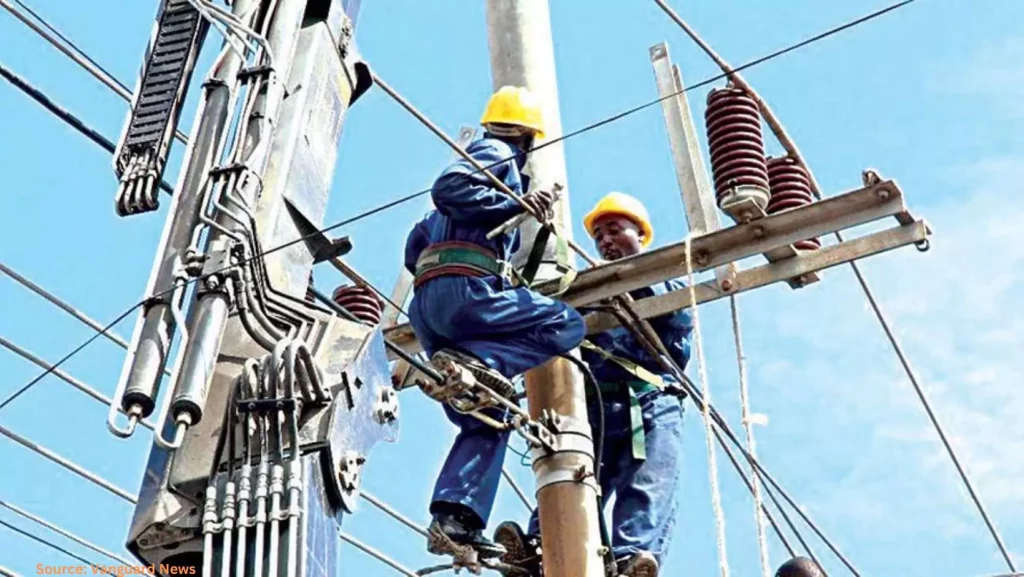
The government should reconsider this decision. Raising costs will hurt economic growth and worsen inflation. The private sector already struggles with high costs. Additional increases may force many businesses to close for good. We need policies that promote economic growth, not hinder it.
Earlier, Dr. Chinyere Almona spoke about the need to reduce inflation and rate hikes. She is the Director-General of the Lagos Chamber of Commerce and Industry.
She said,
“Despite attempts to manage rising costs, inflation continues increasing. We must take stronger, multi-layered action. Our goal is to stabilize prices and support people’s buying power.”
“There have been several rate hikes in recent months. However, we have not yet seen a major impact on stabilizing prices. High inflation combined with high interest rates overheats the economy. This causes increased volatility and uncertainty for everyone.”
Interest rates are changing due to the new policies. This may cause issues for private companies to repay loans. People’s purchasing power could decrease. This could lead to lower production and job losses.
A member of the Nigerian Economic Summit Group, Faith Iyoha, said private companies should use alternative power sources.
The Executive Director of the Electricity Consumer Protection Centre, Princewill Okorie, criticized the increase in electricity rates.
“We need to ask the legislators what they are doing. There was a public hearing on this rate increase. Do the legislators have no authority anymore? Why did the NERC increase rates despite our efforts? That means no one controls them. Are they above the law? The legislators were elected by consumers who are voters. It is expected they protect consumer interests. I attended the public hearing and made presentations there.”
“If consumers protest, police may use force. But now consumer rights are violated and they are treated poorly, what is the police’s stance? What are the National Assembly leaders doing? NERC is violating the laws created by the legislators that established them.”
“Who else will help Nigerians? It seems the legislature has no power now. Why did they spend money on the public hearing if they knew there would be no result? The Manufacturers Association of Nigeria took legal action against electricity companies. What was the verdict? Who do people respect?” Okorie questioned.
According to Bode Fadipe, an expert in the electricity industry, the government should reconsider raising electricity tariffs at this time. He urges them to be mindful of the current economic challenges faced by many people, as incomes have significantly decreased.
Fadipe believes that contemplating a tariff hike now may be an oversimplified approach. He states,
“I don’t think a tariff adjustment is necessary right now. The government has to be sensitive to the economic realities people are facing. Disposable income has greatly reduced. To consider raising tariffs may be too straightforward.”
Recently, the Federal Government stated that about 85 percent of Nigerians still benefit from electricity subsidies in the country, despite the potential to save over N1 trillion from the recent tariff increase. This statement came in response to the ongoing public reactions to the recent hike in electricity tariffs.
The regulator clarified that the new tariff removes electricity subsidies for Band A consumers, who make up about 15 percent of the total number of power users across the country.
Electricity Declare Resistance
Shola Aboderin, the Deputy General Secretary of the Nigerian Union of Banks, Insurance, and Finance Institution Employees, expressed concern about the impact of the tariff hike.
“I know that the increase in tariffs will affect production costs, which will inevitably affect the prices of goods and services. Nigerians are already struggling with the high cost of commodities in the market,”
he told The PUNCH.
Many Nigerians have voiced their resistance to the electricity tariff hike, citing the already high cost of living and reduced disposable incomes. The government faces the challenge of balancing the need for revenue generation with the financial burdens on citizens during these economically challenging times.
These days, many families face troubles putting food on the table. How can the government ask people to pay more for electricity? Costs for basic needs are already very high. Regular citizens have little money left over after buying essentials.
Ogochukwu Igwebike, leader of the National Union of Electricity Employees, agrees with this view. He says power sector workers will strongly oppose this latest tariff increase. They understand the struggles regular people face affording basic utilities
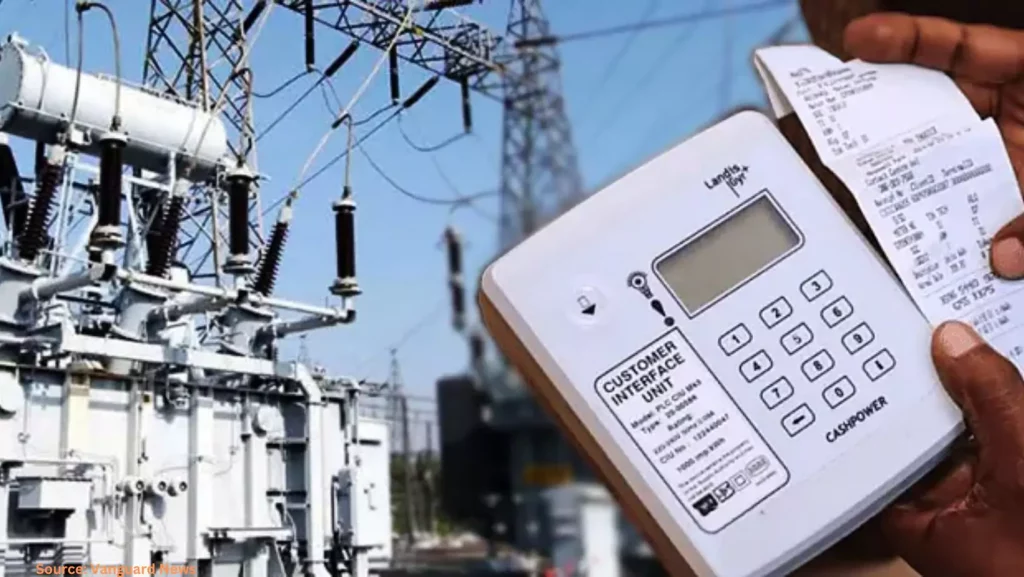
The choice to raise electricity costs is not good. The worker groups NLC and TUC were against the first price hike. And we also said no to it. But they went ahead and raised the prices again even though many people were worried.
We are going to act in response to this and say no to it. We do not accept it. Workers will stand up to it. The tough money times now do not call for any such increase in costs, the worker official made clear.
On his side, a person who works for the Nigeria Labour Congress said that the group in charge of electricity prices did not ask the NLC before they OK’d the latest price raise. The NLC worker, who did not want to be named at this time, said the worker union will not let the price go up.
Any increase to bills puts more weight on Nigerian workers and all Nigerians. This is not OK, mainly in these very hard times Nigerians are facing now. Let people breathe. This new burden on Nigerian workers is unacceptable. It also shows disrespect from the electricity companies and the price group to the National Assembly.
The National Assembly made a group to look into the last electricity price increase. So if the electricity companies and the price group respected them, they would not raise prices now. This shows clear disrespect.
So the National Assembly should really speak up about this. The price group cannot OK higher costs without asking for input. And they did not ask the NLC’s thoughts, even though the NLC is a key group affected. If the prices went up without our input, then there is a problem, the NLC worker said.
Getting views first was needed. The Nigeria Labour Congress criticized the move by the electricity companies to raise rates without proper talks with civil society groups and organized worker unions.
The Deputy Head of the NLC political group, Prof. Theophilus Ndubuaku, shared information in an interview. He stated,
“The reality is that before raising electricity rates, there must be talks with civil society and organized labor. Why don’t they care about legality? It shows they don’t care, they do what they want, they want to bully people. They don’t seem to care at all.”
Instead of calming Nigerians, they tell us to turn off our fridges. We are also watching to see what they do about minimum wage. We want to know how the public will react.” The Chairman of Trade Union Congress in Ekiti State, Sola Adigun, said the power rate hike is unacceptable for workers in the state.
“Speaking as workers’ representative under TUC and as a citizen here, that rate increase is unacceptable. Honestly, it is cruel.”
“Every citizen is struggling, and the government has said many times that it knows Nigerians’ hardships. But some steps and policies this administration takes do not match what they say.”
“With our challenges here in Ekiti, I don’t know if we even have Band A, B or C because right now, the last time we had public electricity in my area in Ado Ekiti was in July last year. In a few days, it will be a year. You can see that most Nigerians and Ekiti people have been using alternative power sources like generators or solar power.”
Many people are upset about the recent rise in electricity rates. In Ekiti State, the Trade Union Congress (TUC) and the Nigeria Labour Congress (NLC) say it’s not acceptable. The power supply has been poor, so higher rates don’t make sense. The unions are discussing their next steps.
In Osun State, TUC Chairman Abimbola Fasasi called the increase for Band A customers a “wicked decision.” He said it’s an affront to all Nigerians, not just workers and labor leaders. The unions are still challenging the existing rates for different customer bands. Reversing the earlier hike was one of their demands during the recently suspended strike. But now rates are going up again before that issue was resolved.
Fasasi made it clear this was his personal view, saying,
“The classification they did before increasing the tariff is unacceptable. In fact, the reversal of the earlier increase was part of the demands in the recently suspended strike. We have not really resolved that, we are still in discussions, and the tariff is being jacked up again. It is unacceptable; my personal opinion.”
Meanwhile, the NLC in Abia State says it will consult with the national leadership. NLC Abia Chairman Ogbonnaya Okoro stated,
“It appears that it was based on national instruction. If so, we will consult with our national body, the NLC and TUC.”
Many people find the latest increase in electricity prices disappointing. The Nigeria Labour Congress (NLC) in Sokoto State spoke against this new hike.
Hamisu Hussain, the NLC Secretary in Sokoto, said no customer there falls under Band A. But he believes even a small price rise should be resisted.
He feels the electricity companies are using this as a trick to raise rates across all bands, not just for Band A customers.
Meanwhile, in Kebbi State, the NLC Chairman Murtala Usman commented that only the state government buildings and top facilities get around 20 hours of power supply daily. He warned the Kano electricity company against broadly increasing prices for the masses.
The Petroleum and Natural Gas Senior Staff Association of Nigeria in Port Harcourt also opposed the new higher electricity rates across Nigeria. Their Zonal Chairman, George Nwoko, called this unfair to Nigerians.
He said,
“Nigerians already face many struggles. Any further price hike on basic needs will negatively impact their well-being. We are still negotiating the minimum wage. If they approve electricity price rises now, it is cruel to the masses, and we will resist it.”
The NLC in Plateau State likewise condemned the electricity tariff increase. Their Chairman, Eugene Mangji, stated,
“If this new hike by the electricity companies is true, it is sad and insensitive. How can they raise prices again when Nigerians already rejected the previous increase due to economic hardship?”
See the news below…
TRACKING AFRICA
— J.O. Comms (@jo_comms) July 4, 2024
Labour, Private Sector Unite Against Tariff Hike
The Nigeria Labour Congress, TUC, & Organised Private Sector criticized the recent electricity tariff increase for Band A customers.#ElectricityTariffHike #ESSENCEFest30 #cryptocurrency #visa #Dior #Jo_comms pic.twitter.com/PjG80S0cq8
Don’t Miss: Edo PDP Primary Nullified: Court Cites Delegate Exclusion, Violation of Guidelines

